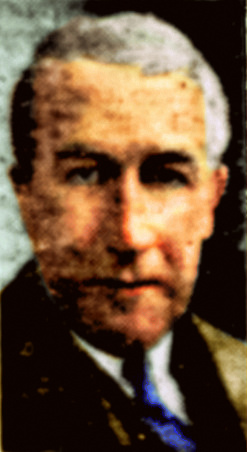

Simms: World bases held vital to U.S. future
Election candidates should air views
By William Philip Simms, Scripps-Howard foreign editor
Washington –
Now that President Roosevelt and Governor Dewey have both spoken vigorously in support of American cooperation in post-war security, it is remarked that neither has yet mentioned the subject of bases without which America’s role might be fatally handicapped.
The administration’s attitude thus far has been that territorial and related matters should be pigeonholed until the end of the war. And, generally speaking, this stand has received wide support.
However, the other members of the Big Three are following no such policy. Russia, and to a certain extent Britain, already know what they want, and intend to get, out of this war. Of the great powers, apparently only America will go to the peace table, hat in hand, wondering what will be dropped into it.
Action is vital
Both candidates agree that quick action is vital to peace, if the world is again threatened by an aggressor. And rightly, it is remarked the President Saturday night likened policing the world to policing a town.
He said:
A policeman would not be a very effective policeman it, when he saw a felon break into a house, he had to go to the Town Hall and call a town meeting to issue a warrant before the felon could be arrested.
But it is observed, there is a corollary to the presidential metaphor. It is that a policeman would not be a very effective policeman if he had to make his headquarters, say in New York, and somebody telegraphed him that a felon was breaking into a house in New Orleans.
Bases needed
To preserve order in a large area, the authorities are careful to have adequate police stations located at strategic places throughout the town.
Russia, which owns approximately a sixth of the habitable globe and which, at the end of this war, will be the world’s greatest land power, is not waiting to strengthen her defenses. Already she has staked out claims in Eastern Europe and elsewhere, and Britain, if not America, has okayed them, at least in principle.
In return, there is reason to believe that Marshal Stalin and Prime Minister Churchill, at their recent meeting in Moscow, reached a degree of understanding with regard to Britain’s post-war sphere of influence. They are not holding back until the peace.
In line with the Atlantic Charter, of course, the United States is seeking “no aggrandizement, territorial or other.” But it does have one major stake, namely, an enduring peace. To get such a peace an overwhelming majority of the American people and both Houses of Congress favor, if necessary, the use of force – United States force. But this force will not be effective without adequate bases in the Atlantic and the Pacific and these we haven’t got.